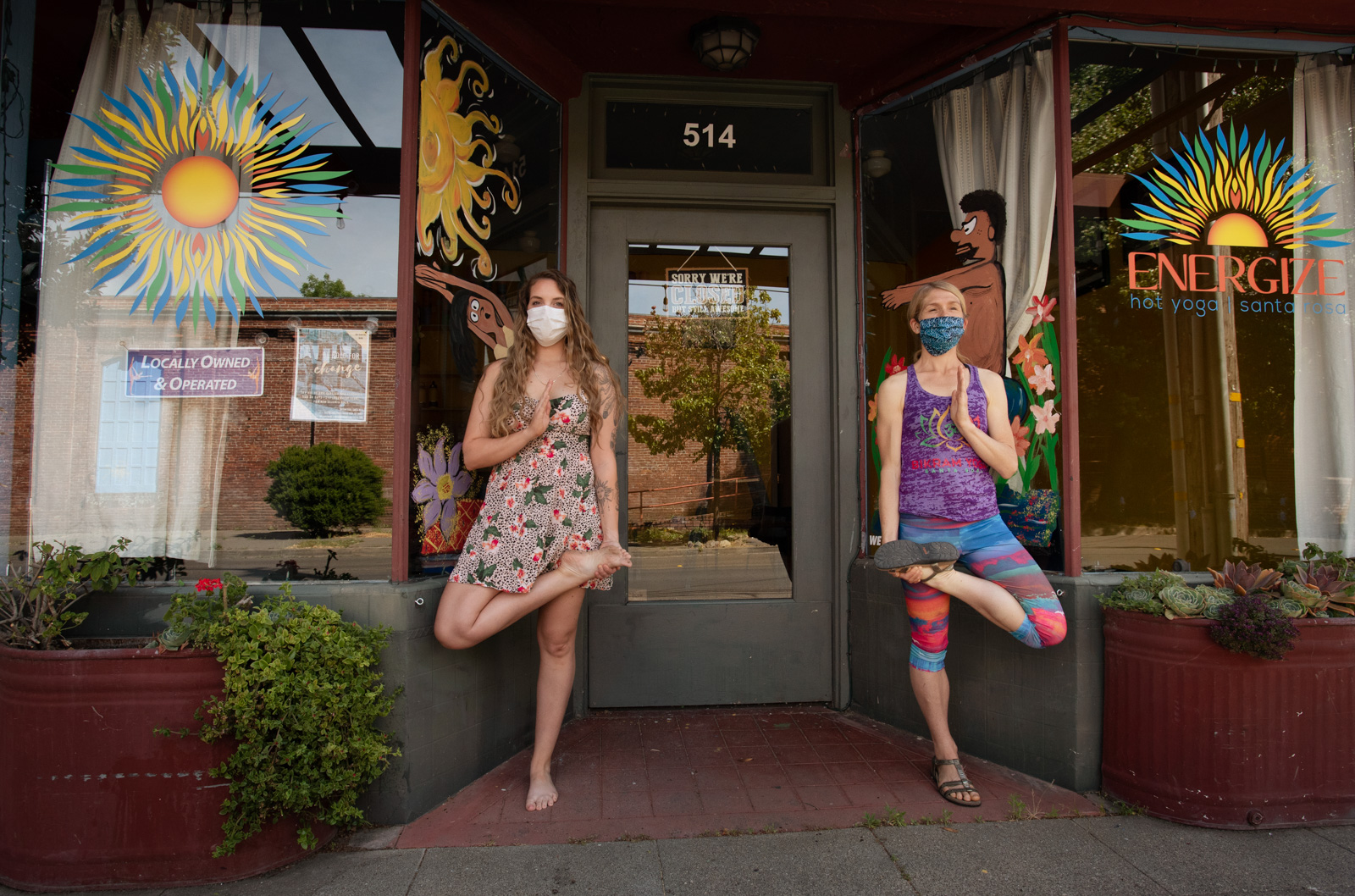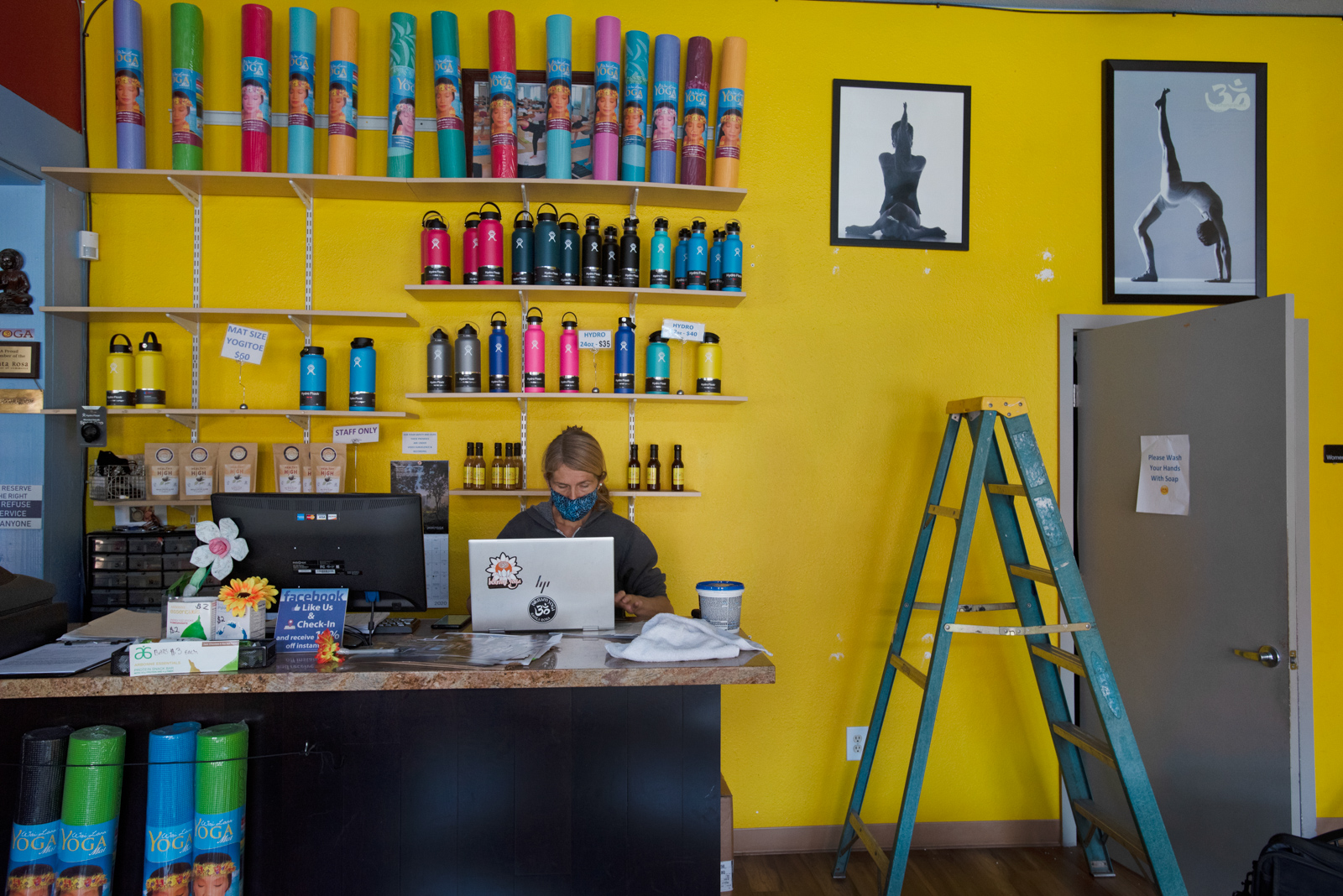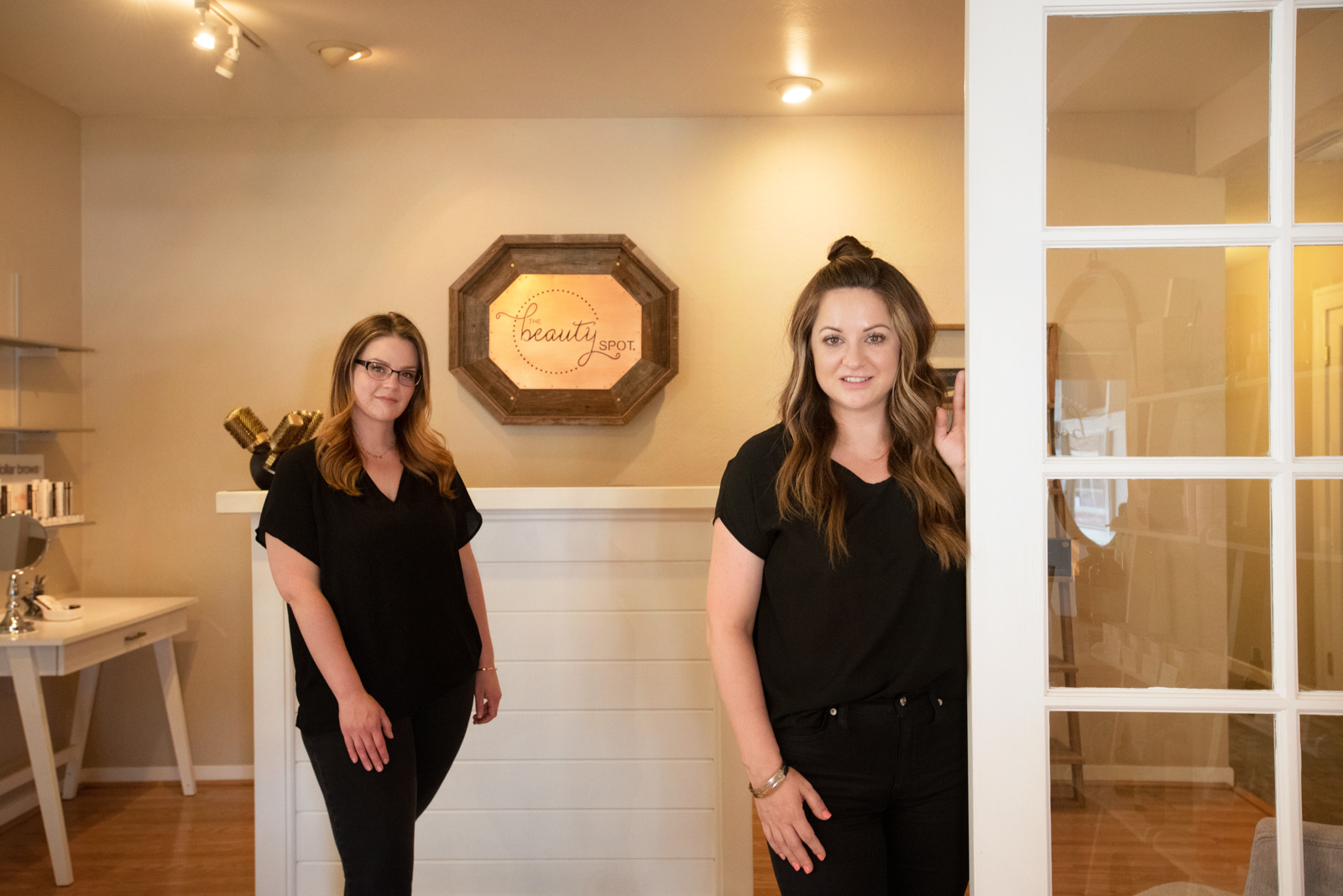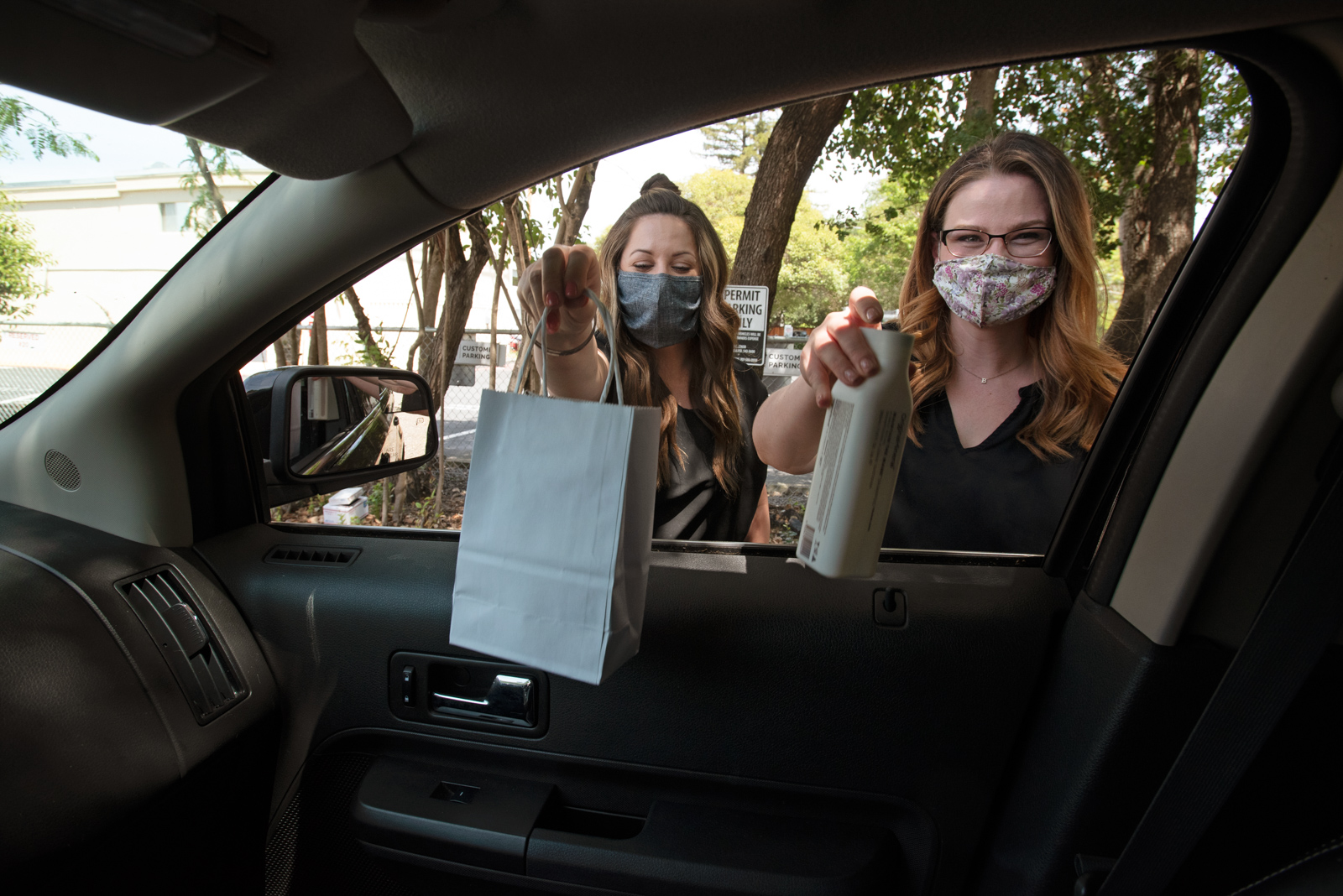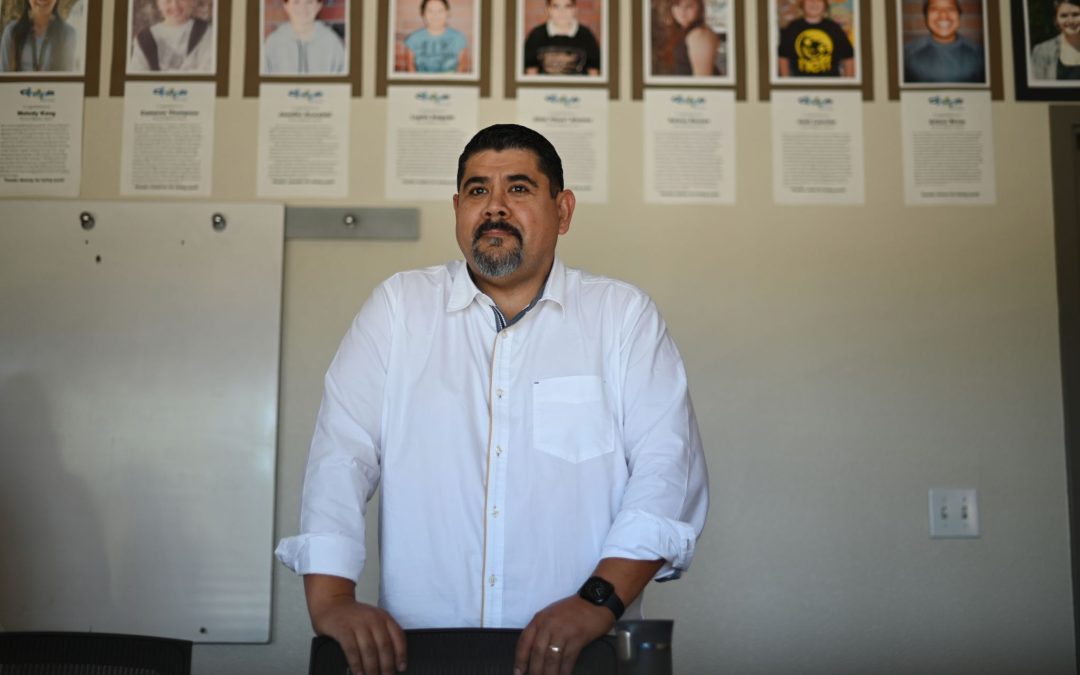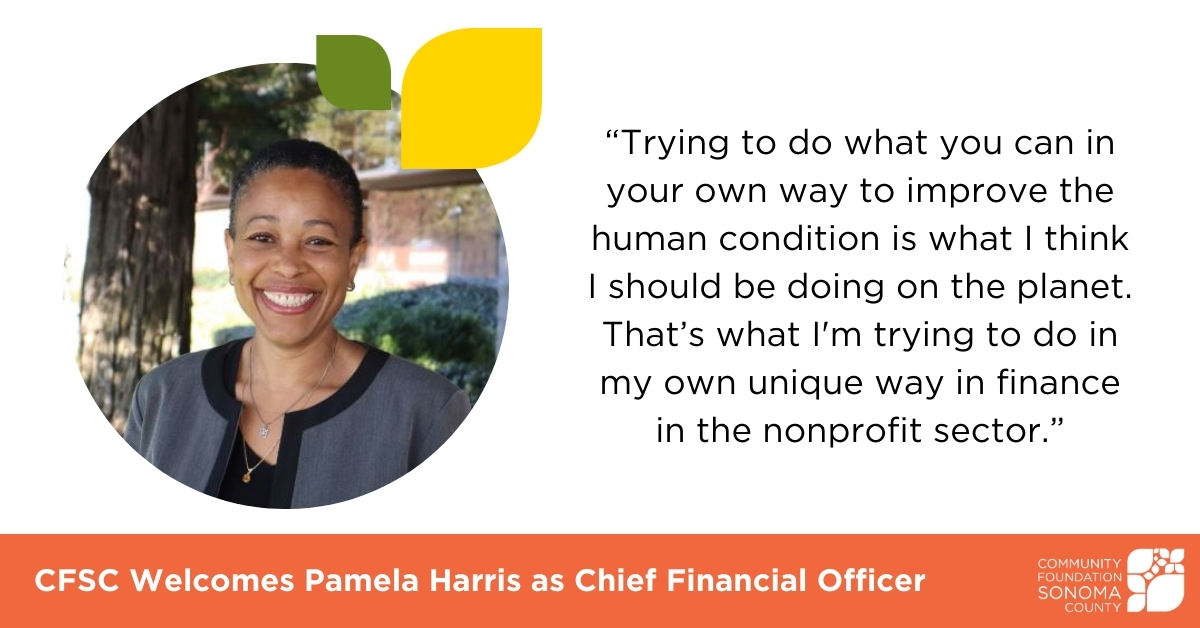Story by Dani Burlison, Photos by Erik Castro
On the afternoon of April 22, New Jersey native Tom Singerline made his way through Dry Creek Valley on his way home to Santa Rosa. Singerline, who owns and operates Jersey Tom Wine Country Tours, was emotional as he listened to the Jersey 4 Jersey benefit concert. Because of coronavirus, he hadn’t worked since March 12. His mother, across the country in a nursing home in Atlanta, had recently tested positive for COVID-19. He was worried about friends and family back in New Jersey, one of the country’s hardest-hit regions. He was worried about his friends and colleagues in the wine industry and wondered how Sonoma County would recover from yet another crisis.
“I’m driving down the road, and I’m listening to the Jersey 4 Jersey concert, and I’m not kidding you, I started freaking crying,” he says.
By the time Singerline, 62, turned onto Westside Road, his cell phone beeped.
“I looked at my phone, and I saw it was from the Chamber. I had been approved for a grant for the maximum $2,000,” he says.
Singerline was one of 1,000 people who applied for a Santa Rosa Metro Chamber’s Small Business Emergency Grant within the first 48 hours of the application period opening. Like many other small business owners, he is faced with an uncertain future because of the county’s strict and effective shelter in place orders. Although many in the wine industry have adjusted by offering virtual wine tastings and curbside pickup of purchases, Singerline’s one-person business, that he started in 2013 after various jobs in the construction industry and a recent, nearly deadly battle with cancer, relies on in-person tours of wineries throughout northern Sonoma County. The emergency funds ensure that Singerline can keep his business license and insurance up to date until he can book tours again.
Santa Rosa Metro Chamber’s CEO Peter Rumble says that the seeds of the emergency program were first planted during last year’s Kincade Fire when numerous small businesses were impacted by evacuations around the county. When the coronavirus prompted shelter in place orders and closed businesses in March, the Metro Chamber contacted members and asked what their most pressing needs were. Time and again, small businesses (defined through this program as having fewer than 20 employees) said they simply needed money to pay their bills.
As Rumble began thinking of ways the Metro Chamber Could help, he reached out to us at Community Foundation Sonoma County (CFSC) and asked if we would provide seed funding for the emergency grants program. They launched applications with a $50,000 grant from our Sonoma County Resilience Fund. “Small business owners in Sonoma County have poured their lives into growing something locally, creating businesses that support our local economy and keep many others employed.” Says Elizabeth Brown, President and CEO of CFSC. “Right now, these business owners have had to make heartbreaking decisions; many forced to furlough their staff. We wanted to find a way to ensure that the people who work in small businesses will have jobs to return to.”
“[The grants] are not intended at all to be the one thing that saves businesses,” says Rumble. “But it could bridge people through the period of time until bigger dollars start to flow, or the shelter in place eases a little bit.”
Rumble says that the grants are available to eligible businesses anywhere in Sonoma County in the amounts of $1,000 or $2,000. The Metro Chamber received applications from a wide range of businesses, including nail and hair salons, bakeries, restaurants, retail, freelance writers, gyms, health and fitness spaces, and hospitality businesses.
Rebecca Pennington, who has owned Energize Hot Yoga (formerly Bikram Yoga) for ten years, says she panicked when she realized she’d have to close the doors to the studio, which has operated in Santa Rosa’s Railroad Square for twenty years.
“I had a student pull me aside, it was about March 1, and he said, ‘Hey Rebecca, you should really start thinking about virtual classes in case this virus makes it over here, and everything has to get shut down.’ And I thought, ‘That’s totally crazy. That would never happen’,” she says.
Soon after, the reality of the pandemic sunk in, and Pennington quickly cut capacity in half for the 50 weekly studio classes. Since their final in-person class on March 17, staff has adapted to using technology, and Energize Hot Yoga now offers 37 classes through Zoom each week. And although many students have remained on their auto-debit monthly memberships—fees have been reduced by 50%—Pennington says about half of their students have canceled their memberships. Additionally, there was a recent break-in at the empty studio, though only a few items were stolen. Pennington says she will schedule online classes through the fall, in hopes of returning to the studio at some point in the future.
In the meantime, the emergency funds have helped her offset expenses.
“[The emergency grant is] paying half of my rent this month. Every penny helps, and I’m just trying to get my business through this slump,” she says. “My business has been there for a very long time. It’s pretty well established, luckily. But we’ve never—knock on wood—until now, had to really worry about covering rent.”
According to California’s reopening criteria, higher-risk businesses that require contact with patrons, such as bodywork and hair salons, fall into Phase 3, and will only reopen with strict modifications and restrictions. This is especially challenging for businesses that see a surge in patronage in the spring and summer months.
Veronica Passalacqua owns The Beauty Spot, a GreenCircle certified Sustainable Salon in Santa Rosa that offers haircuts, organic hair color, and esthetician services. The salon has been closed since early March. A Windsor resident, Passalacqua was evacuated from her home for two and a half months during the Kincade Fire and is now facing the opposite extreme of sheltering in place. She says both incidents have caused stress, but she’s following orders and keeping her salon closed.
“We felt some pressure leading up to [shelter in place] that this was going to impact us somehow. We already had a really beefed up sanitation procedure in the salon, so we were being very cautious, and honestly, that’s sort of where I thought we would stay,” says Passalacqua. “We were already trying to get ahead of that. Then on the 14th, I was watching a news conference, and I felt my heart jump into my throat, and I thought, ‘Oh, my gosh. We’re going to get shut down. This is the real deal.'”
Although Passalacqua has sold some products online, her salon has taken a big financial hit. The emergency grant has helped Passalacqua pay her rent at her downtown Santa Rosa salon and has allowed her some time to strategize her next steps. And as eager as she is to get herself and her staff back to work, she is following the CDC’s lead and keeping her doors shut until she’s given the green light to reopen.
“I’m really, really certain that, with what we knew about viruses before COVID, I could protect people with the sanitation I had in place,” she says. “And though I really want to get back to work, and I want my company to survive and my staff to be able to have a paycheck, my concern is their safety.”
Rumble says that as more funding comes in, the Metro Chamber will continue to move down their list of eligible applicants and distribute the much-needed funds.
In the meantime, Singerline points out the importance of supporting small businesses and recognizing our interconnectedness here in Sonoma County.
“When you have a small business, you roll the dice. People put life savings or borrow money or whatever, and they start a loan, and they start a little business, and they build it up,” he says. “You put your heart and soul into it, you build up a beautiful little business, and then things happen. Fires, the floods, and now this COVID-19. And all of a sudden, you’ve gone through your savings. You have nothing. And what do you do?”
For now, he’s grateful for the grant. His mom is doing better. His wine tours, he hopes, will be back on the road eventually.
“We can’t lose these little businesses like mine— I support so many other businesses, and they support me,” he continues. “And then, in turn, I’m able to give money back to the community.”

